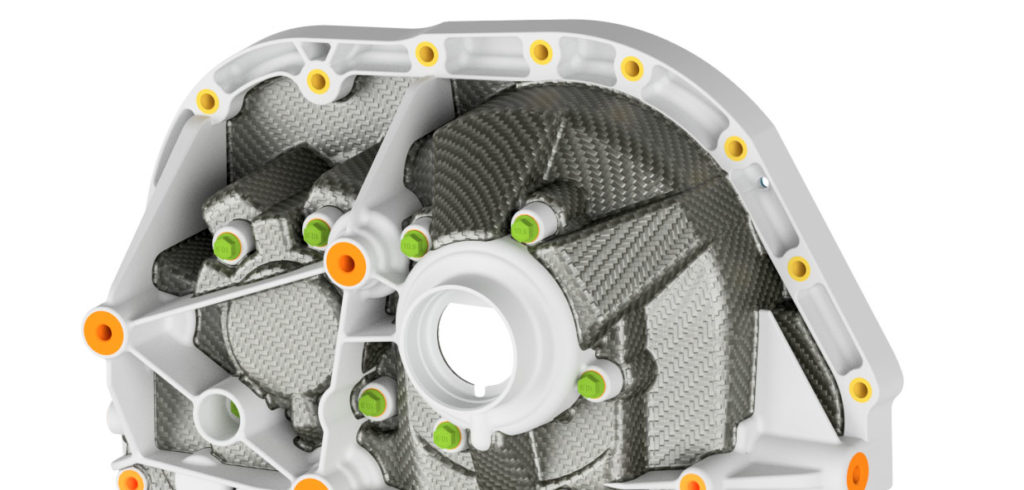Engineering consultancy Drive System Design (DSD), which specializes in developing and testing conventional and electric driveline systems, and the UK’s National Composites Centre (NCC) are to jointly develop high-power dense integrated electric-drive performance units.
The focus of such work, which will last a period of 12 months, will be to increase the efficiency of integrated electric drive units (EDU) for electric vehicles. With funding from Innovate UK (IUK), the two will also assess the effectiveness of new composites in terms of raising power density and reducing unit size to deliver greater efficiency.
The teams will try to increase EDU efficiency by harnessing the noise, vibration and harshness (NVH) dampening properties of composite materials. Honing NVH tolerance gives engineers more freedom to work on balancing NVH levels with the efficiency of high-power-dense e-motors, in tandem.
“This project represents a unique opportunity to bring together leading driveline and composites expertise with the common goal of optimized EDU development. By working together from the outset, we are able to negate many of the development challenges traditionally posed when working with emerging technologies, materials and associated manufacturing techniques,” said Markus Hose, DSD’s head of mechanical engineering.
Aliya Valiyff, NCC’s automotive technology program manager, noted, “The NCC is looking forward to working with DSD to develop the tools and processes that enable efficient integrated drive units through targeted application of composite materials.
“As the country moves toward an all-electric transport system, there is a major opportunity for both the domestic and export markets. The NCC, DSD, and IUK will be helping to enhance UK skills in power electronics, machines and drives by cementing existing skills and developing new technology.”


